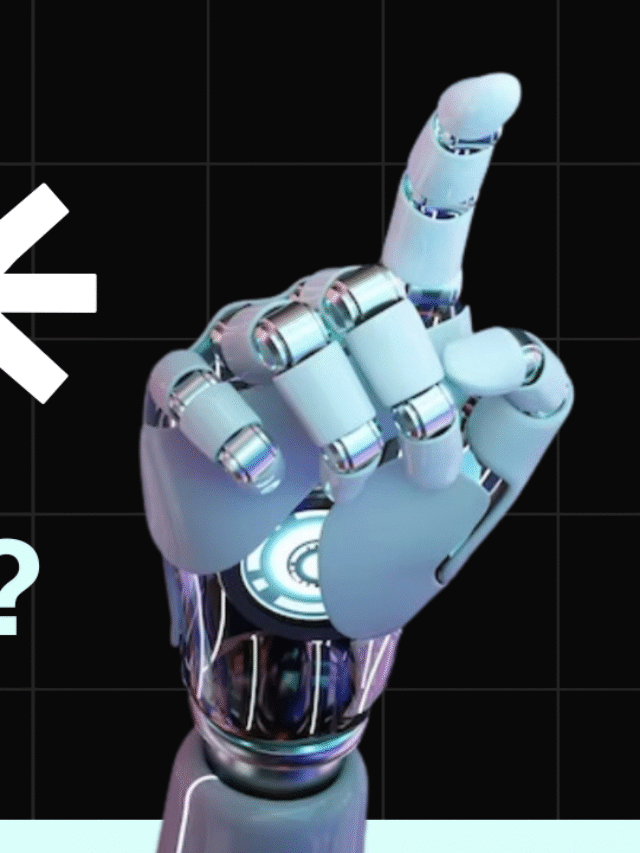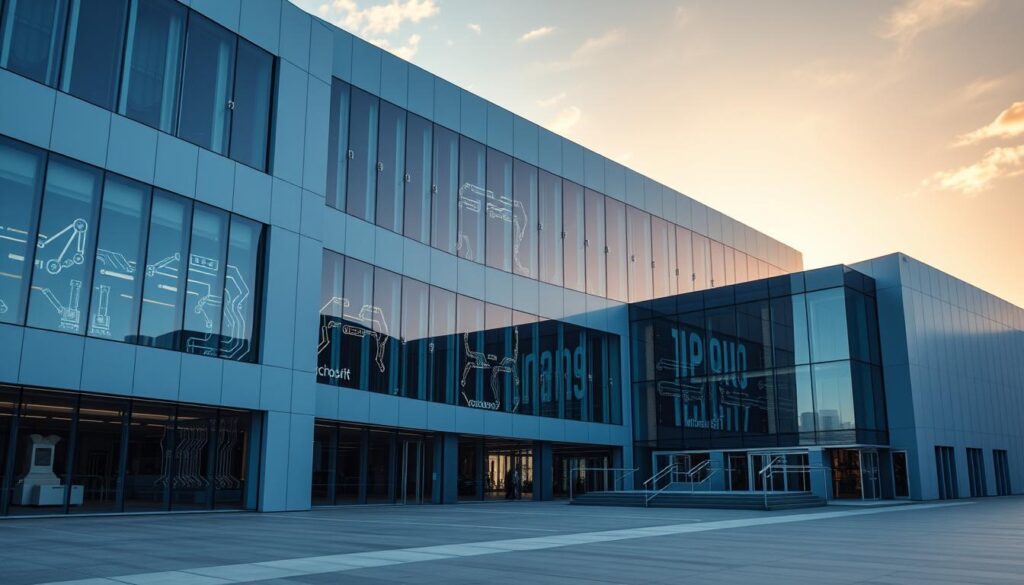In May 2025, a big announcement hit the tech world. Microsoft revealed a major workforce reduction. They cut about 6,000 jobs worldwide, which is roughly 3% of their staff.
This move is part of a bigger plan to focus more on artificial intelligence (AI) development. It marks a key moment in the company’s growth.
Looking into this restructuring, it’s important to grasp its scale and strategic meaning. The decision shows a commitment to making operations more efficient. It aims to simplify management across different areas.
Key Takeaways
- The workforce reduction is part of Microsoft’s strategic shift towards AI development.
- Approximately 3% of Microsoft’s global staff was affected by the layoffs.
- This move is expected to enhance operational efficiency and streamline management.
- The restructuring signals a significant moment in Microsoft’s evolution.
- The company’s focus on AI is likely to impact its competitive positioning in the market.
Breaking Down Microsoft’s May 2025 Layoff Announcement
Microsoft’s May 2025 layoff announcement has shocked the tech world. Many are trying to understand the big changes this brings. The company plans to cut 6,000 jobs to make things more efficient and to simplify management.
Scale and Scope of the 6,000 Employee Reduction
The 6,000 employee reduction is a big deal. It shows Microsoft is focusing on what’s most important. This change affects many areas, showing a deep restructuring effort.
Official Company Statement and Implementation Timeline
Microsoft says the layoffs are to make things more efficient and to simplify management. The company has a plan to help those who lose their jobs. This includes severance packages and help finding new jobs.
Initial Market Response to the Announcement
People watching the stock market closely have reacted to the news. Some see it as a smart move for future growth, like in AI. But, others worry about how it might affect Microsoft’s stock in the short term.
The Strategic Shift: Microsoft Layoffs Microsoft Job Cuts Explained
Microsoft is changing, and its latest layoff is a big part of that. This move is to focus more on AI-focused business model. Microsoft wants to stay ahead in the fast-changing tech world.
Realignment Towards AI-Focused Business Model
Microsoft wants to lead in AI. It’s cutting back to put more into AI research and development. The company plans to spend $80 billion on AI infrastructure by 2025.
Streamlining Management Layers Across Divisions
Microsoft is making its structure simpler. It’s cutting down on management levels across different areas. This should make the company more agile and quick to adapt to changes.
Operational Efficiency Goals Behind the Decision
Microsoft’s main goal is to work better and save money. By cutting jobs and making processes smoother, it wants to be more competitive. This move is part of a bigger plan to succeed in the future tech world.
Divisions Most Impacted by the Workforce Reduction
Microsoft has made big changes in several key areas. The company is now focusing more on AI. This shift has led to big changes in different business units.
LinkedIn Division Restructuring Details
LinkedIn has seen big changes as part of Microsoft’s broader layoffs. The goal is to make LinkedIn work better with Microsoft’s plans. This is expected to make LinkedIn more efficient and help it grow.
Cloud Computing and Enterprise Services Changes
Microsoft’s cloud and enterprise services have also changed a lot. The company wants to be better in the cloud market. It’s working to use resources better and offer services that customers want.
Consumer Products Team Adjustments
The team for consumer products has also changed. Microsoft wants to focus more on areas that are growing fast. This means moving resources to support innovation and better products for customers.
These changes show Microsoft’s dedication to its vision. It’s using AI and cloud computing to grow in the future.
Microsoft’s $80 Billion AI Investment Plan for FY2025
Microsoft is set to change the tech world with a huge $80 billion AI plan for FY2025. This big money shows the company’s strong focus on AI. It wants to be a leader in the fast-changing tech scene.
Capital Expenditure Breakdown and Priorities
The $80 billion will be spent in different areas. A big part will go to making AI better. This includes better data centers, more cloud computing, and new AI hardware.
AI Infrastructure Development Initiatives
A lot of money will go to making AI systems stronger. These systems will help with many tasks, from business to everyday use. Microsoft wants to make its AI services work better and faster.
Research and Development Funding Allocation
Also, a lot will go to research and development. This will help Microsoft find new AI tech, improve what it has, and innovate more. This funding is key to keeping Microsoft ahead in AI.
Microsoft’s big AI investment will make its services better now and in the future. This shows the company’s big plans for technology’s future.
Financial Context: Strong Revenue Despite Layoffs
The tech giant reported $70.07 billion in revenue for Q2 2025. This shows the company’s strong financial health, even with recent layoffs.
Q2 2025 Earnings Overview
Microsoft’s Q2 2025 earnings report showed a big revenue number, with $70.07 billion in total revenue. This highlights the company’s strong market position.
Microsoft’s CEO said, “We continue to execute well across our business, with cloud growth and innovation in AI driving our results.” This shows how cloud and AI are key to Microsoft’s success.
Investor Reactions to Restructuring Strategy
Investors have mixed feelings about Microsoft’s restructuring strategy. Some are confident in the company’s long-term growth. The layoffs were seen as a smart move to focus on AI.
Stock Performance Following the Announcement
Microsoft’s stock did well after the layoff news, staying stable. This shows investors trust Microsoft to handle restructuring while keeping finances strong.
The Wall Street Journal said, “Microsoft’s shift to AI is expected to boost growth.” Analysts agree, seeing Microsoft’s AI investments as a key to future success.
Competitive Landscape: Microsoft’s AI Market Positioning
Microsoft is making big moves in AI, but it’s facing tough competition. The AI market is getting crowded, with many big names trying to grab a piece of the pie.
Key Rivals in the Enterprise AI Space
Microsoft is up against giants like Google, Amazon, and IBM. These tech giants are also pouring money into AI, creating new solutions that challenge Microsoft’s.
Specialized AI companies like NVIDIA and Palantir are also making waves. They’re pushing the boundaries of AI technology.
Market Share Battles and Strategic Advantages
Microsoft is fighting hard to increase its share in the AI market. It’s focusing on adding AI to its products like Azure and Office 365. This strategy aims to give Microsoft an edge.
| Company | AI Investment | Key AI Products/Services |
|---|---|---|
| Microsoft | $80 Billion (FY2025) | Azure AI, Microsoft 365 AI Integrations |
| Significant, exact figures not disclosed | Google Cloud AI, TensorFlow | |
| Amazon | Significant, exact figures not disclosed | Amazon SageMaker, Alexa AI |
Industry Consolidation Trends
The AI industry is seeing a lot of mergers and acquisitions. Big companies are buying up smaller AI startups to boost their skills. Microsoft is likely to keep up with these trends to stay ahead.
By understanding the competition and using its strengths, Microsoft hopes to stay a major player in AI.
Employee Impact and Support Measures
Microsoft’s restructuring affects its employees deeply. The company is working hard to support those who are leaving. It’s important to know how they are helping those who need it most.
Severance Packages and Financial Assistance
Microsoft is giving comprehensive severance packages to those leaving. These packages include money to help until they find new jobs. The severance packages are made to be fair, showing Microsoft’s care for its employees.
Transition Resources and Outplacement Services
Microsoft also offers transition resources and outplacement services. These include help with career choices, resume writing, and interview skills. The goal is to make the transition smoother for its former employees.
Internal Redeployment Opportunities
For those staying, Microsoft looks for internal redeployment opportunities. They find roles that fit the skills of the affected employees. This way, they can keep contributing to Microsoft’s goals. It’s a win-win for both the employees and the company.
Microsoft shows its dedication to its employees, even during big changes. Their support measures are a testament to this commitment.
Public and Employee Reactions to the Layoffs
Microsoft’s decision to lay off thousands in 2025 has caused a stir. People are worried about the company’s future and feel sorry for those who lost their jobs. This mix of emotions shows how big of an impact these layoffs have had.
Social Media Response and Employee Testimonials
Social media is full of reactions to the layoffs. Employees who lost their jobs are sharing their stories. Some are thankful for their time at Microsoft, while others are worried about what’s next.
“I’m sad to see so many talented colleagues go. Microsoft is more than just a company; it’s a community. I hope the restructuring brings the focus back to innovation.” – A former Microsoft employee on LinkedIn.
Labor Organization Statements
Labor groups have also spoken out. They see the layoffs as a sign of a bigger problem in the tech world. They think companies are focusing too much on saving money and not enough on their workers.
Community Impact in Major Microsoft Hubs
The layoffs have hit hard in places where Microsoft is big. In Redmond, Washington, for example, local businesses and leaders are stepping up. They’re working to help those who lost their jobs.
| Location | Impact | Community Response |
|---|---|---|
| Redmond, WA | High concentration of Microsoft employees | Local businesses supporting those affected |
| San Francisco, CA | Significant presence in the tech hub | Tech industry events for laid-off employees |
| Seattle, WA | Major office with diverse roles | Community centers hosting job fairs |

Industry Analyst Perspectives on Microsoft’s Strategy
Industry analysts have shared their thoughts on Microsoft’s recent changes. They are looking at how the company is handling artificial intelligence and cloud computing. They are also talking about the layoffs and Microsoft’s big plan to spend $80 billion on AI by FY2025.
Wall Street Analyst Assessments
Wall Street analysts have mixed views on Microsoft’s plan. Some see the layoffs as a way to make things more efficient. Others worry it might hurt Microsoft’s ability to innovate. A Goldman Sachs report says Microsoft’s AI investments could pay off in the long run, but notes the short-term hurdles.
Tech Industry Expert Opinions
Tech experts have shared their thoughts on Microsoft’s moves. For example, Forrester Research thinks Microsoft’s AI efforts could give it an edge. Others say Microsoft’s focus on cloud and enterprise services fits with current trends.
Long-term Viability Predictions
Analysts have different views on Microsoft’s future. Here’s a look at what they think:
| Analyst | Prediction | Key Factors |
|---|---|---|
| Goldman Sachs | Positive | AI investments, operational efficiency |
| Forrester Research | Positive | AI infrastructure, cloud computing |
| Morgan Stanley | Neutral | Restructuring challenges, market competition |
Overall, analysts see both chances and challenges in Microsoft’s strategy. As technology keeps changing, Microsoft’s ability to adapt and innovate will be key to its success.
Historical Context: Microsoft’s Previous Restructuring Efforts
To understand Microsoft’s current restructuring, we must look back at its previous efforts. Microsoft has a history of significant layoffs and restructuring, with notable instances in 2014 and 2017. These past efforts provide valuable context for understanding the company’s current strategy.
Microsoft’s previous restructuring efforts were largely driven by the need to adapt to changing market conditions. In 2014, Microsoft announced a significant restructuring in response to the rise of mobile devices and cloud computing. This effort involved a major shift in the company’s culture and business model. In 2017, Microsoft underwent another round of layoffs to streamline operations and focus on cloud and AI technologies.
Comparison to 2014 and 2017 Layoff Rounds
The current layoffs can be compared to those in 2014 and 2017 in terms of their strategic objectives. All three instances involved significant reductions in workforce, aimed at refocusing the company’s resources on emerging technologies. The current round is distinct in its emphasis on AI and cloud computing.
Lessons from Earlier Organizational Changes
Microsoft’s past restructuring efforts have taught the company valuable lessons about the importance of adaptability and strategic realignment. By examining these efforts, we can see that successful restructuring requires a clear vision and a willingness to invest in new technologies.
Success Metrics from Past Restructuring
The success of Microsoft’s past restructuring efforts can be measured by its improved financial performance and market positioning. For instance, the company’s focus on cloud computing has driven significant revenue growth. By applying the lessons learned from these efforts, Microsoft is poised to continue its successful adaptation to the evolving tech landscape.
Global Impact: Regional Distribution of Layoffs
The recent Microsoft layoffs have caused waves worldwide. They’ve hit different regions in unique ways. As Microsoft reshapes, the effects on various parts of the globe are clear.
Washington State Employment Effects
Microsoft’s layoffs have big implications for Washington State. The company’s home state will likely see economic ripples. These could affect housing, transportation, and more.
International Office Adjustments
Microsoft’s offices worldwide are also feeling the changes. The company is making its global operations more streamlined. This includes reshaping its international teams to focus on AI.
Economic Impact on Tech Hubs
The layoffs at Microsoft have a big economic impact on tech hubs. Places with a strong Microsoft presence will see changes. These could alter innovation and job trends in these areas.
Conclusion: What Microsoft’s Restructuring Signals for Tech’s Future
Microsoft’s move to focus more on AI is big news for the tech world. The company is cutting 6,000 jobs to focus on AI. This is part of its $80 billion plan for AI by FY2025.
This change shows a bigger trend in tech. Companies are now putting more effort into AI to stay ahead. This shift will lead to new ideas and change the tech scene.
Microsoft’s choices will shape the future of tech. Other companies might also focus more on AI. This will have a big impact on the industry.












